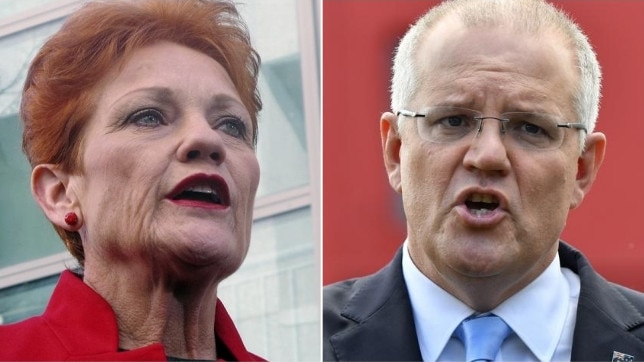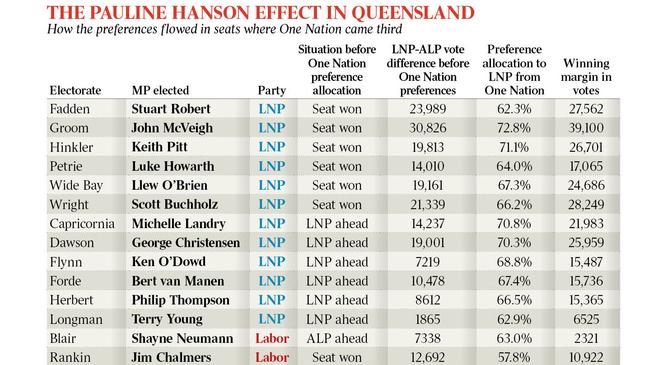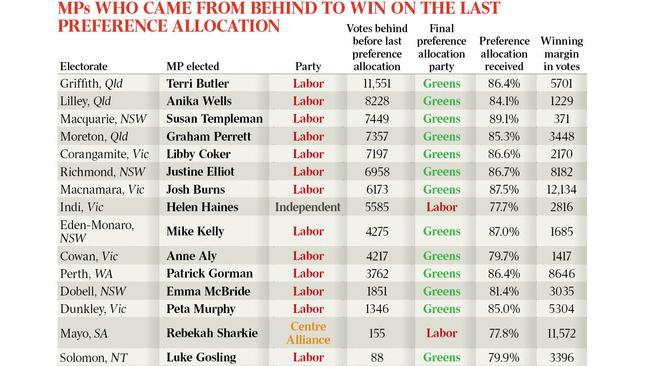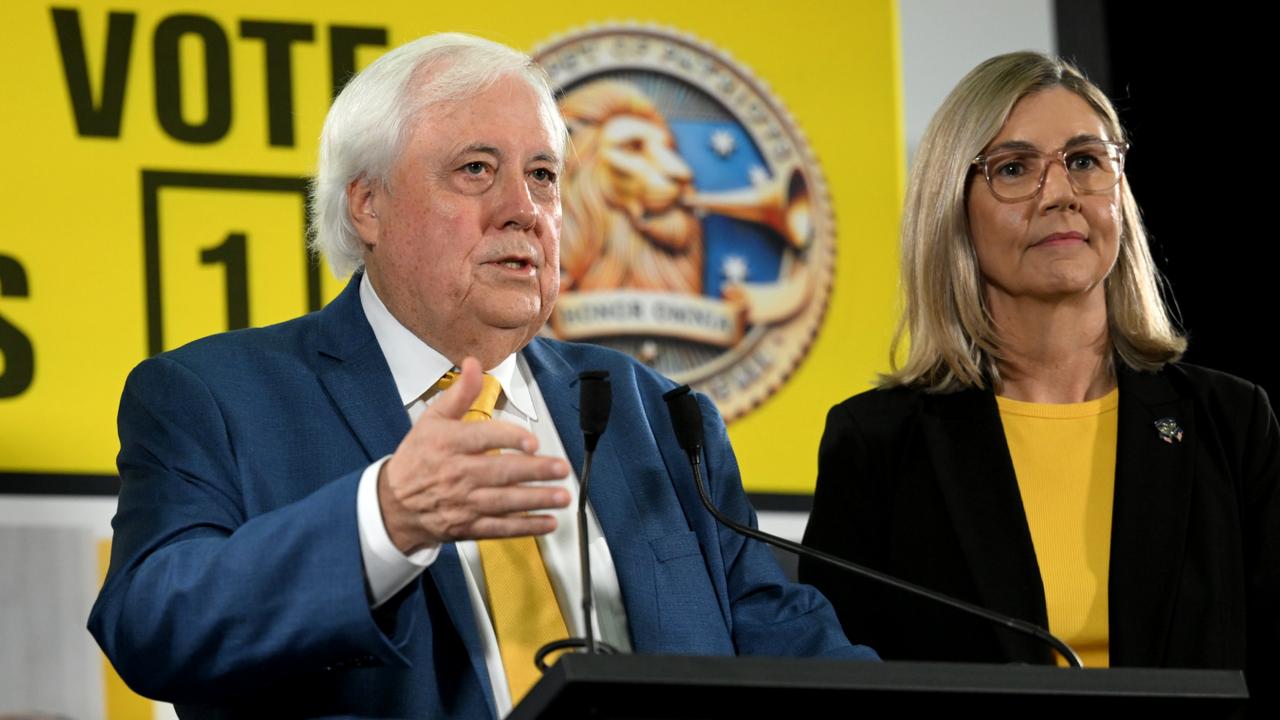Coalition MPs got home without Hanson
How many seats did One Nation preferences deliver to the Coalition?

None of the Coalition’s Queensland MPs needed more than 50 per cent of One Nation preferences to win their seat at the May 18 election.
In contrast, Greens preferences helped secure victories at the May election for 13 Labor MPs who were in losing positions before the final allocation of preferences.
Analysis by The Australian of newly released Australian Electoral Commission data shows that in 12 Queensland seats ultimately won by the Coalition and where Pauline Hanson’s party finished third, the government had secured 50 per cent of the vote or was leading Labor before One Nation preferences were distributed. Although One Nation preferences did not cost any Labor candidate victory in Queensland, preference flows from Senator Hanson’s party to the Coalition of up to 73 per cent did help to boost the LNP candidates’ winning margins.

During the election campaign, Labor campaigned strongly on One Nation preferences, warning votes for the party would deliver the Coalition victory.
Labor MPs were behind in 13 seats before the last round of preference flows kicked in, but went on to claim victory because a high percentage of Greens votes flowed their way. This trend was critical in three of the party’s six Queensland seats, Griffith, Lilley and Moreton.
The Greens preferences in those seats flowed to the opposition at a rate of about 85 per cent. The Greens preferences also secured Labor wins in four NSW seats, including Macquarie, which Susan Templeman won by 371 votes. Eighty-nine per cent of Greens preferences in Macquarie flowed to Labor.
In Victoria, Greens votes made the difference in Corangamite, Macnamara and Dunkley, while they also shifted two seats in Western Australia and one in the Northern Territory.

Liberal National senator James McGrath said the analysis showed the difficulty Mr Albanese would have in shifting Labor’s agenda to the centre. “This shows Labor cannot win without Greens preferences, which is why Labor keep tacking to the left policy-wise,” Senator McGrath said. “The lesson from 2019 was to listen to the quiet Australians. This shows for Labor to win they have to listen to the Greens.”
Veteran Labor strategist Bruce Hawker said Labor had become more reliant on Greens preferences over the past two decades. He said Labor had to “walk and chew gum at the same time” by also appealing to disaffected voters who were turning to One Nation.
“These, too, are people who once voted for the Labor Party in considerable numbers,” Mr Hawker said.



To join the conversation, please log in. Don't have an account? Register
Join the conversation, you are commenting as Logout